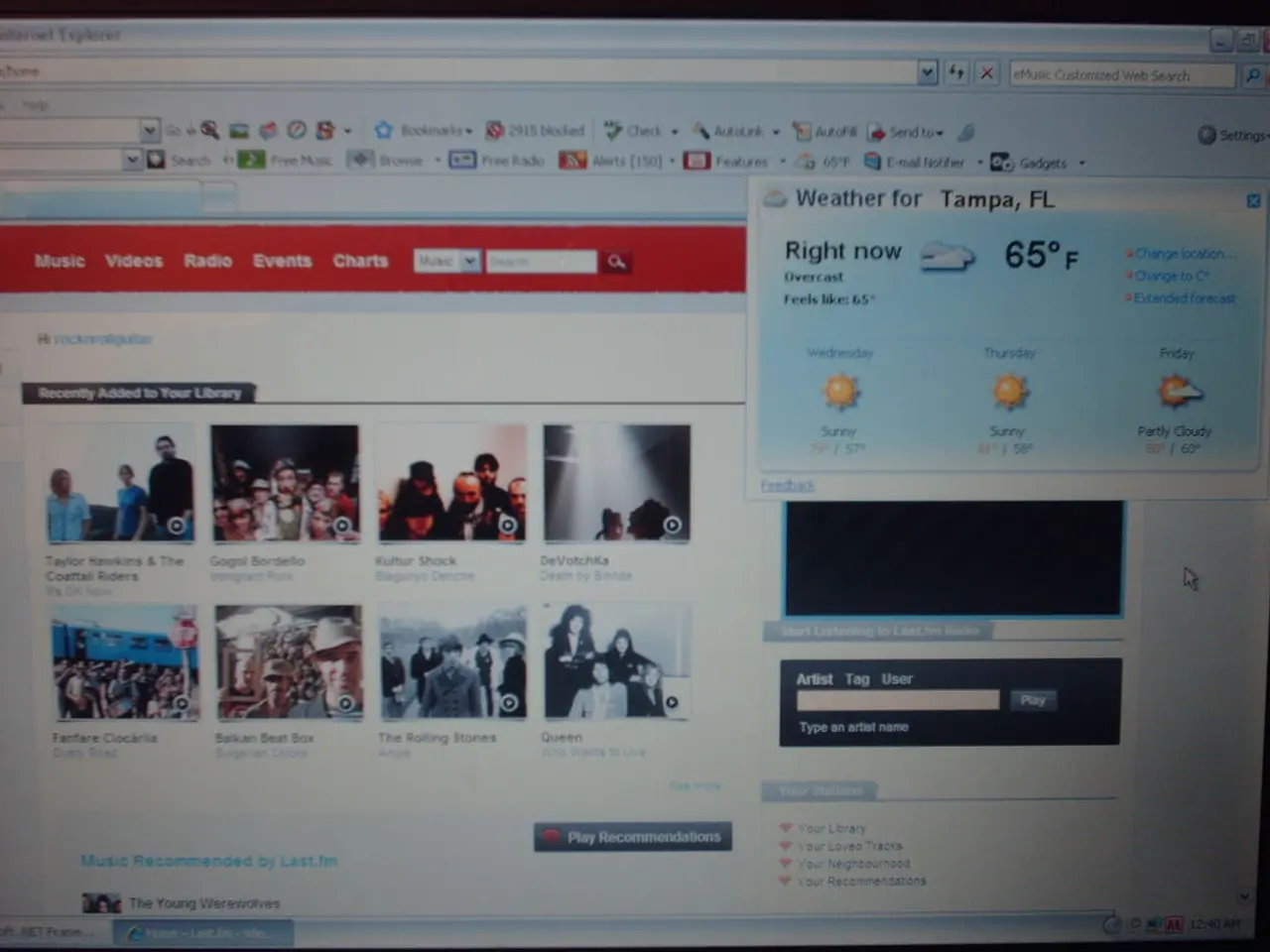Anticipated Benefits of an RN to MSN Bridge Program
In the rapidly evolving world of healthcare, the demand for advanced nursing education is on the rise. For registered nurses (RNs) seeking to expand their skills and knowledge, RN to MSN online bridge programs offer a flexible and efficient pathway to a Master of Science in Nursing (MSN) degree. These programs combine BSN and MSN-level coursework into one curriculum, making it easier for working nurses to balance their professional responsibilities with their academic pursuits.
Some of the top RN to MSN online bridge programs for advanced practice, education, or leadership roles emphasize flexibility, accreditation, and specialized tracks to support career advancement in nursing. Here are some noteworthy programs based on recent data for 2025:
1. **Liberty University (RN to BSN to MSN)** - Focus Areas: Advanced education and leadership roles - Delivery Format: Fully online, accelerated format - Tuition & Credits: $330 per credit hour, 39 credits credited for RN license - Accreditation & Highlights: CCNE accredited; reduced tuition rate; accelerated pathway filling gaps efficiently[4]
2. **University of Alabama (RN to BSN/MSN Nurse Executive)** - Focus Areas: Leadership/executive nursing roles - Delivery Format: Fully online - Tuition & Credits: Bachelor's: $385/credit; Master's: $440/credit; 50-56 total credits - Accreditation & Highlights: CCNE accredited; 180 clinical hours; no campus attendance; early graduate admission[3]
3. **Grand Canyon University (MSN without clinicals)** - Focus Areas: Health Informatics, leadership, healthcare technology - Delivery Format: Fully online, 8-week courses - Tuition & Credits: 40 credits at $575 per credit - Accreditation & Highlights: CCNE accredited; no clinical hours; emphasis on data-driven healthcare and technology integration[1]
4. **University of Central Florida (MSN in Leadership and Education tracks)** - Focus Areas: Nursing leadership, management, healthcare simulation education - Delivery Format: Online + campus options; flexible scheduling - Tuition & Credits: In-state: ~$6,368; Out-of-state: ~$22,467 (tuition varies) - Accreditation & Highlights: CCNE accredited; unique simulation education track; fee waivers available; Florida RN license required[2]
When choosing a program, consider your career goals—whether you aim for advanced clinical practice, education, leadership, or healthcare technology—and check state licensure requirements and program accreditation by bodies such as the Commission on Collegiate Nursing Education (CCNE). These programs are among the best options for RNs seeking to advance to MSN degrees online with bridge formats tailored for working nurses and those balancing professional responsibilities.
These programs are designed for nurses with an associate degree or nursing diploma. Admission criteria for RN to MSN programs typically include a current RN license, an associate degree or diploma in nursing, and a minimum GPA. Online programs offer greater flexibility, allowing students to complete assignments asynchronously and balance work or family obligations.
Practical experiences are essential for developing advanced nursing skills and meeting licensure or certification requirements. Clinical hours are a necessary component of any MSN program, including RN to MSN bridge programs, and must be fulfilled in person, usually through local community placements.
The choice of specialization should align with career goals, whether providing primary care, teaching future nurses, or leading healthcare systems. Most programs begin with foundational BSN-level courses, focusing on subjects like evidence-based practice, community health, and leadership. Some online programs offer accelerated tracks for those who want to finish sooner. Program length can vary based on enrollment status, transfer credits, and chosen specialization.
Bridge programs save time and money by allowing students to begin taking graduate-level courses earlier. Admission teams may place extra weight on a professional background and motivation for advanced study due to entering at a graduate level without a BSN. It is a smart investment for nurses ready to lead, teach, or provide expert care in today's complex healthcare environment. The length of an RN to MSN program typically ranges from 2.5 to 4 years.
RN to MSN online bridge programs allow experienced nurses to reach the next level in their careers, earn a master's degree faster, gain specialized skills, and qualify for various advanced practice and leadership roles. These programs are designed to provide the flexibility needed to balance work and life while pursuing advanced nursing education.
1) In pursuit of a Master of Science in Nursing (MSN) for advanced practice, education, or leadership roles, RN to MSN online bridge programs like the one offered by Liberty University with a focus on advanced education and leadership roles are valuable options, as they offer an accelerated, flexible, and efficient path to an MSN degree.
2) For RNs interested in leadership/executive nursing roles, the University of Alabama's RN to BSN/MSN Nurse Executive program, featuring a fully online format, is a noteworthy choice, with a reduced tuition rate, accelerated pathway, and no campus attendance requirements.
3) The Grand Canyon University's MSN without clinicals program is suitable for those with interests in health informatics, leadership, or healthcare technology, as it provides a fully online format, emphasizing data-driven healthcare and technology integration.
4) The University of Central Florida's MSN program in Leadership and Education tracks caters to nurses seeking advanced nursing leadership, management, or healthcare simulation education, offering a unique simulation education track, and flexible scheduling options to balance work and study.
When selecting a program, it's essential to consider career goals, including advanced clinical practice, education, leadership, or healthcare technology, and ensure state licensure requirements are met while considering program accreditation by bodies such as the Commission on Collegiate Nursing Education (CCNE). These programs are ideal for nurses seeking to advance to MSN degrees online with bridge formats tailored for working nurses.




